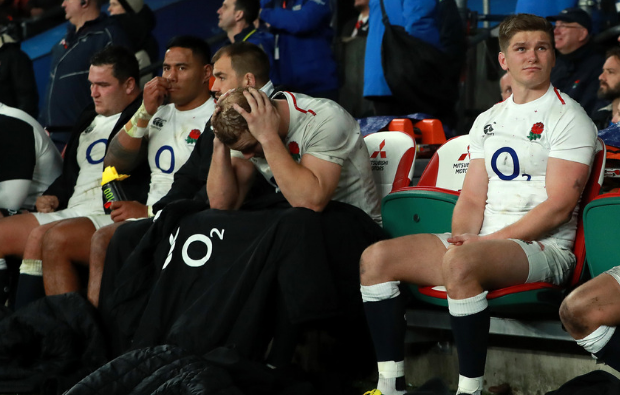World Rugby is considering a reduction in subs among other law trial proposals for the next World Cup cycle
- 4865

World Rugby's Law Review Group (LRG) will meet in London today, Thursday 26 June, and tomorrow to discuss potential player welfare-based law amendments for the next Rugby World Cup cycle.
The meeting of law experts, players, coaches, referees and elite competition representatives furthers World Rugby’s collaborative approach to injury-prevention within the process of law review and builds on the success of the player welfare and laws symposium in Marcoussis in France in March.
At the Marcoussis meeting, delegates considered the latest global game and injury trends. Headline game analysis data confirmed ball in play time has increased by up to 50 per cent since 1987 (greater increases in northern hemisphere competitions), while the number of tackles has increased by 252 per cent over the same period. Scrums have decreased by 56 per cent.
With the tackle accounting for 50 per cent of all injuries and 76 per cent of all concussions and 72 per cent of concussions in the tackle occurring to the tackler, the group considered evidence-based ways to reduce injuries in the tackles, resulting in a number of recommendations for the LRG to consider within the law amendment process:
- 50:22 kick proposal: creating space by encouraging players to drop back from the defensive line
- Reduction in the number of permitted substitutions
- Off feet at the ruck/players must leave the ball: creating greater contest at the ruck to speed up ball availability
- Delaying the movement of the ruck defensive line: reduce defensive line speed
- Lowering the tackle height: building on World Rugby's three-phase approach
- Ability to review a yellow card when a player is in the sin bin for dangerous foul play
The LRG will examine each proposal and make recommendations to the international federation's Rugby Committee as to which proposals are suitable for trial. Alongside the six Marcoussis proposals, the LRG will also consider detailed proposals from the Fédération Française de Rugby regarding the tackle and a number of proposals in relation to the sevens game and Rugby X competition, which will launch in October this year.
The group will also consider the latest data from the recent World Rugby U20 Championship where a high tackle technique warning system operated, focusing on removing high-risk tackles by encouraging player behaviour change. The 2018 edition resulted in a 50 per cent reduction in concussions year-on-year
World Rugby Chairman Sir Bill Beaumont said: "We are committed to ensuring that rugby is as simple and safe to play for all and the quadrennial law review process is the vehicle in which we review current law with a view to enhancing the experience for players and fans.
"This is the first time that we have kick-started the process with the sole purpose of injury-prevention and the Law Review Group will give detailed consideration and analysis of the Marcoussis recommendations and to determine practicality and likely impact and therefore which ideas, if any, would be suitable for trial recommendation after Rugby World Cup 2019 in Japan."
LRG and Rugby Committee Chairman John Jeffrey added: "I am looking forward to welcoming delegates for what will be an important and informative meeting and would like to thank unions, competitions and International Rugby Players for their continued full support of the process. By the end of the week we will have a clear mandate to take forward to the Rugby Committee in terms of the law amendments and trials for potential implementation within the next four-year cycle."
World Rugby Deputy Chief Medical Officer Dr Eanna Falvey said: "While community and youth injury rates are comparable to other mass-participation sports, overall elite level injury-rates are not increasing and concussion incidence has decreased by between 10-14 per cent in the last year, the game is united in its commitment to further reduce the risk of injury.
"This is an exciting opportunity for us to place injury-prevention at the heart of the law review process, ensuring that research and evidence continues to inform the major decisions that are made about the playing of the game in order that players at all levels of the game benefit."
Via World Rugby












